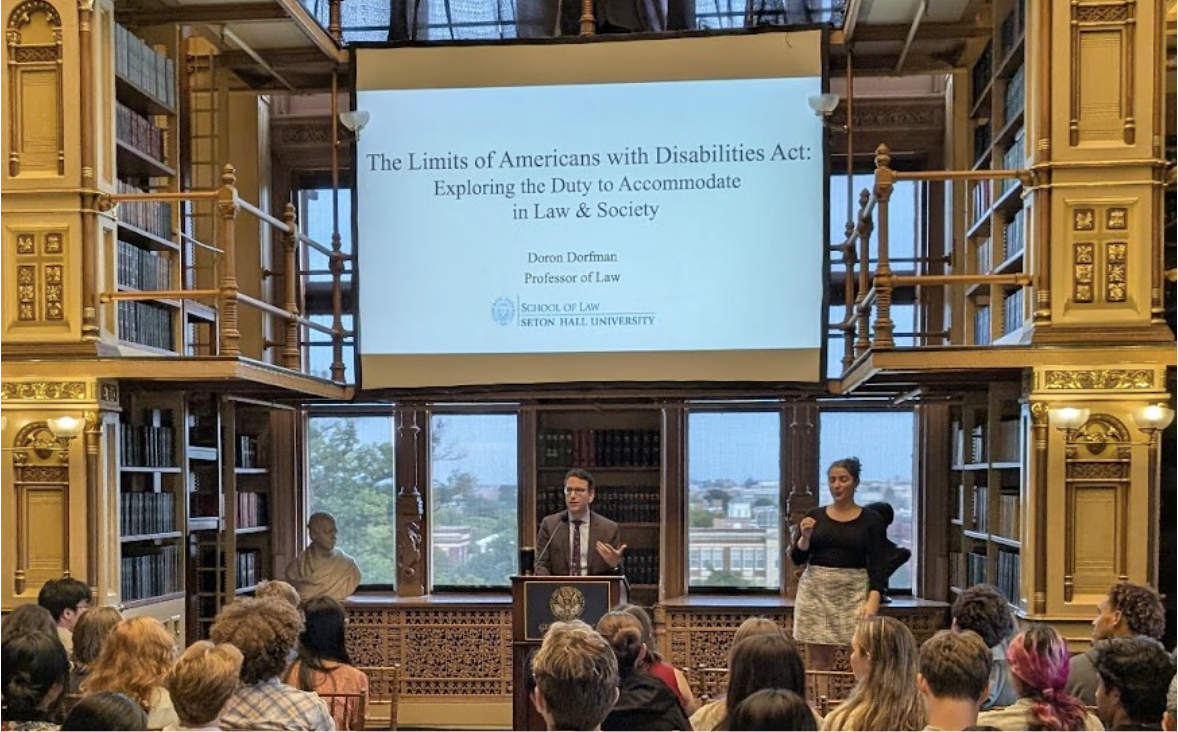A Georgetown University community member at the school’s Capitol Campus was diagnosed with tuberculosis (TB), a treatable but serious illness, the university announced in a Nov. 25 email.
The university is working with infectious disease experts from its faculty and the District of Columbia Department of Health (D.C. Health), which is leading the public health response to the case, to provide information and resources to the community, according to the email. The university did not identify the individual diagnosed with tuberculosis, but they are currently receiving treatment and in good condition, the email said.
Tuberculosis — a bacterial infection of the lungs that can also affect other parts of the body and is spread through the air — can be deadly if left untreated, though antibiotic treatment for the disease is available. The Centers for Disease Control and Prevention (CDC) recommends that people experiencing tuberculosis symptoms, including cough, fever, chest pain, pain when breathing, shortness of breath and fatigue should isolate, take proper safety precautions and go to a doctor for testing.
Dr. Seble Kassaye, the university’s acting medical advisor and an infectious disease specialist, urged anyone potentially exposed to test for the disease.
“It is important that persons who are notified about possible exposure complete the recommended screening and testing to determine infection status,” Kassaye wrote to The Hoya. “As TB takes time to establish infection, testing is performed at baseline, and again in approximately 8 weeks.”
“D.C. Health takes the lead to identify and coordinate or provide testing to close contacts,” Kassaye added.
The university has made testing available for anyone exposed, while D.C. Health has been working to notify community members who were potentially exposed.
As part of the public health response to the case, the university and D.C. Health also held a virtual seminar Nov. 26 to address the reported case and provide general information about TB. The seminar focused on the nature of TB, how it spreads, testing and treatment information and public health strategies in place to contain TB.
Rahul Saxena, an assistant professor at the Georgetown University School of Medicine who studies TB, said tuberculosis symptoms are often long-lasting.
“Common symptoms of TB include a cough lasting more than three weeks, coughing up blood or phlegm, chest pain, weight loss from appetite loss and fever,” Saxena wrote to The Hoya. “Diagnostic imaging methods such as chest X-rays, ultrasounds and CT scans can help confirm the infection in patients with these symptoms.”
“Patients exhibiting these symptoms should be isolated to prevent the potential spread of TB,” Saxena added.
This case of tuberculosis is the first at Georgetown since 2007, when a graduate student contracted the disease.
Medical experts divide tuberculosis into two types: active tuberculosis, in which people experience symptoms and can spread the disease, and latent tuberculosis, in which people are infected by TB but do not exhibit symptoms and cannot spread the disease. Both can be treated with antibiotics, with active TB taking longer to treat and requiring several months of antibiotics to combat symptoms.
In her letter to The Hoya, Kassaye said she recommends that individuals who have latent TB take precautions including taking tuberculosis medication.
“Since there is about a 10% risk of progression from latent infection to active disease over the course of a lifetime (~5% risk within the first 2 years, and another ~5% over the remainder of one’s life, and with greater risk of progression among persons with immunocompromise or certain chronic health conditions such as diabetes) it is generally recommended that persons with latent TB receive medication to prevent progression to symptomatic active TB disease,” Kassaye wrote.
Tuberculosis is among the world’s deadliest infectious diseases, causing about 1.25 million deaths globally in 2023, according to the World Health Organization. The emergence of multidrug-resistant TB (MDR-TB) variants have made it harder to treat with simple antibiotics.
Saxena said TB is still a major public health risk even though treatments are available for it.
“Mycobacterium tuberculosis (M. tuberculosis), the bacterium responsible for tuberculosis (TB), remains a significant global health threat,” Saxena wrote. “The emergence of drug-resistant strains has exacerbated the situation, leading to a global health crisis.”
Nursing student Shrishti Chhajlani (SON ’26) said she felt reassured by the efforts of the university and D.C. Health.
“While I was concerned to learn that there was a case of TB in Georgetown, the email Georgetown sent out to the community felt reassuring,” Chhajlani wrote to The Hoya. “They seem to be taking the right steps and safety measures to prevent a TB outbreak on campus.”
This article was corrected on Dec. 21, 2024, to remove a misattributed quote.




